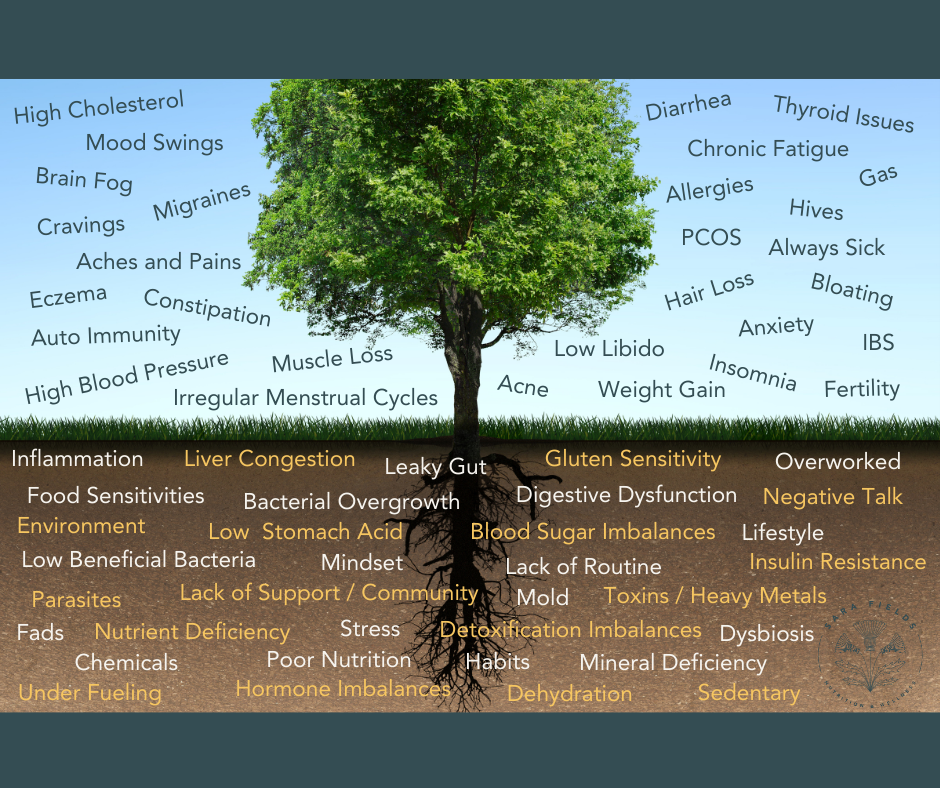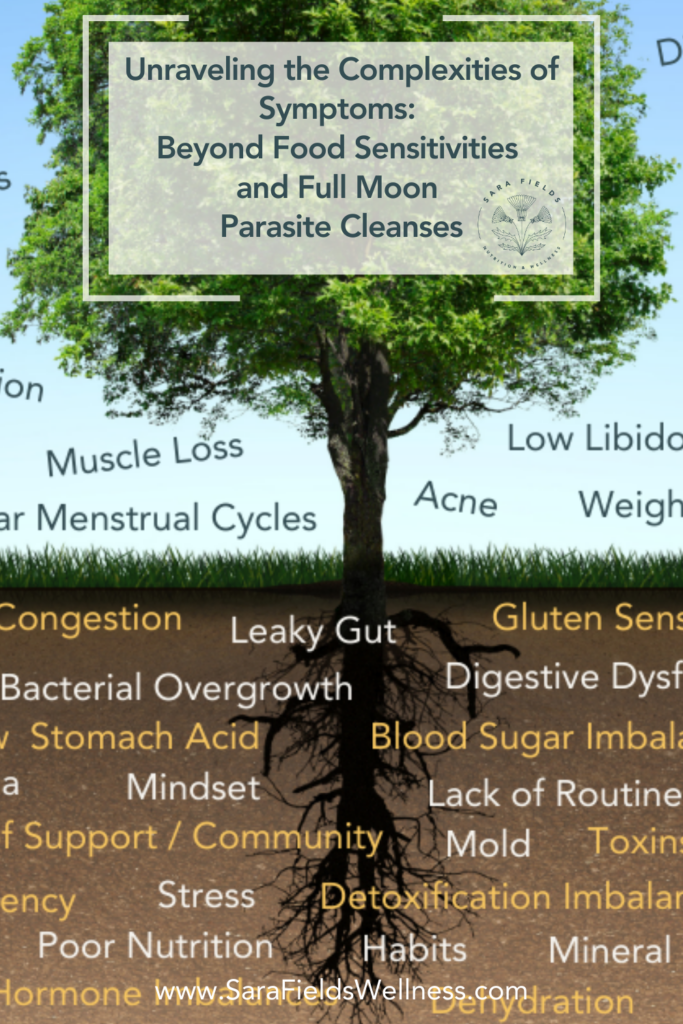
In the realm of health and wellness, the allure of pinpointing a singular cause for our symptoms is compelling. The idea that identifying and eliminating one culprit can lead to immediate relief is both comforting and straightforward. However, the reality is far more intricate. Symptoms often have multiple root causes, and sometimes, what we initially believe to be the problem isn’t the primary issue at all.
Food sensitivities, for example, frequently take the spotlight when people experience digestive discomfort or certain health issues. It’s common for clients to come to me attributing their symptoms solely to food reactions. In fairness, I do lots of food sensitivity testing and think it’s incredibly valuable as a first step to healing up the gut, easing the immune response, and reducing inflammation. However, while food sensitivities can certainly play a role, they are rarely the whole story, and you’ll never catch me doing only a food sensitivity test with someone!
Afterall, how did those foods come to be a problem in the first place?! One crucial aspect often overlooked is the environment within our gut. By focusing only on the foods and not on the gut in which they’re processed, absorbed, and eliminated, this leaves a gaping hole in the “root cause” fact finding mission. We must also consider how your digestive organs are functioning, the microbial composition of the gut, and the health and integrity of the intestinal lining. And that’s just the gut! Stress levels and sources, overall dietary habits, and environmental factors all must be considered as well.
It’s not uncommon for people to misidentify (or oversimplify) the root causes of their symptoms like this. Hormone imbalances are another popular scapegoat for common health issues. While hormones can indeed be a factor, they are often influenced by deeper, underlying issues such as blood sugar dysregulation, gut health, stress, environmental toxins, impaired detoxification, and nutrient deficiencies. Again, focusing solely on hormones without addressing the foundational drivers of hormonal imbalance will lead to only partial or temporary relief at best.
In today’s information-rich age where everything is at our fingertips, it’s easy to read a few articles and conclude that you have identified the root problem of what ails you. “I just know it’s parasites!” “Food reactions are my problem!” I hear these things frequently from clients, and while these factors can contribute to symptoms, they are often not the entire story. To truly understand and address health issues, we need to dig deeper.
This is where tools like specialized functional testing, questionnaires, food journals, and a detailed health history come in. Each of these adds a piece to the overall puzzle of what’s happening in one’s body to bring them to their current health state.
For example, stool testing helps us understand how you’re digesting your food and if there are any microbial imbalances that could be contributing to your symptoms – even if they’re not digestive in nature! Bloodwork helps us understand what’s happening with multiple aspects of the body – metabolic imbalances, impaired detoxification, nutrient needs, inflammation, and so on – all of which might be contributing factors or downstream consequences. Questionnaires can give us clues about environmental exposures or the likelihood of certain microbial overgrowths. Food journals and health histories give us insight into past and current events, symptoms, and habits – all of which can influence our health concerns in a big way.
So you see, health is complex, and so are the symptoms we experience. Identifying the true root cause involves a holistic approach that considers multiple factors. While it’s tempting to look for a single cause, the reality is that multiple things often interplay to create the discomfort or illness we face. It’s very rarely ever as simple as doing a full moon parasite cleanse or a 30 day detox! It takes detective work and a deep understanding of how the systems of the body work together. By broadening our perspective, considering all possible contributors, and using a variety of assessment tools, we stand a better chance of finding lasting solutions and achieving true wellness.

leave a comment